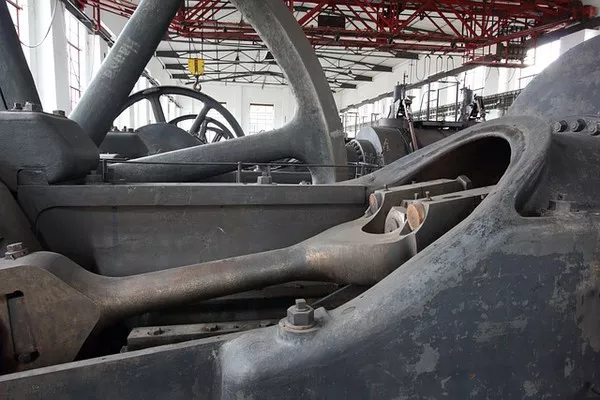In the realm of industrial and home applications, air compressors play a pivotal role in powering a multitude of tools and machinery. However, the incessant noise generated by traditional compressors has long been a concern for both professionals and DIY enthusiasts alike. The demand for quieter alternatives has led to the development of a new generation of air compressors designed with sound reduction in mind. In this article, we delve into the key features and technologies that make an air compressor quiet, providing a comprehensive understanding of the factors contributing to a more peaceful working environment.
Motor Technology: The Heart of Silence
At the core of every air compressor lies its motor, which is a primary source of noise. Traditional compressors often utilize induction motors that can be noisy due to the constant cycling on and off. The advent of advanced motor technologies, such as brushless and oil-free motors, has significantly contributed to reducing noise levels. Brushless motors eliminate the friction and wear associated with brushes, leading to smoother and quieter operation. Oil-free motors, on the other hand, reduce maintenance requirements while ensuring a quieter performance.
Noise Insulation and Vibration Dampening: Creating a Sonic Barrier
Noise insulation and vibration dampening are critical elements in the quest for a quieter air compressor. Manufacturers incorporate innovative materials and design techniques to minimize vibrations and contain sound within the compressor unit. Enclosures made of sound-absorbing materials, such as foam or rubber, help trap and absorb noise before it escapes into the surroundings. Additionally, isolating the compressor from its foundation or work surface through anti-vibration mounts prevents the transmission of vibrations, further contributing to a quieter operation.
Low RPM Operation: Silencing the Spin
The rotation speed of the compressor’s motor is directly related to the noise it generates. Lower RPM (revolutions per minute) operation results in reduced noise levels. Modern air compressors are designed with variable speed drives that allow the motor to operate at lower RPM when the demand is lower, consequently minimizing noise production. This intelligent speed control not only contributes to a quieter working environment but also enhances energy efficiency.
Size and Design: Compact Yet Powerful
The size and design of an air compressor play a pivotal role in determining its noise output. Compact compressors with well-thought-out designs can efficiently house sound-dampening components and contribute to a quieter operation. Additionally, streamlined airflow within the compressor unit reduces turbulence, which, in turn, minimizes noise. Manufacturers are investing in research and development to create compact and aesthetically pleasing designs that prioritize both functionality and reduced noise levels.
Advanced Cooling Systems: Chilling Out the Noise
Heat dissipation is an inherent part of an air compressor’s operation, and conventional cooling methods can be noisy. However, advancements in cooling systems, such as the use of advanced heat exchangers and cooling fans, have significantly contributed to quieter compressors. These systems efficiently dissipate heat while keeping noise levels at a minimum. Intelligent thermal management ensures that cooling is optimized, allowing for a quieter and more reliable compressor operation.
Smart Technology: Whispering Compressors
The integration of smart technology in air compressors has opened new avenues for noise reduction. Smart compressors are equipped with sensors and control systems that monitor various parameters, adjusting the compressor’s operation based on demand. This intelligent control not only optimizes energy usage but also ensures that the compressor operates at the lowest noise level possible for the given task. Smart compressors are a testament to the synergy between technology and silence in the world of air compressors.
Maintenance and Lubrication: Silent Smoothness
Proper maintenance and lubrication are crucial for the smooth operation of any machine, including air compressors. Regular lubrication of moving parts reduces friction and wear, resulting in quieter operation. Furthermore, modern compressors often feature sealed bearings and maintenance-free components, reducing the need for frequent servicing and ensuring a consistently quiet performance over the compressor’s lifespan.
See also What Does A Compressor Control Valve Do
Conclusion:
In the relentless pursuit of quieter air compressors, manufacturers are leveraging cutting-edge technologies and innovative design principles. The days of enduring deafening noise from air compressors are gradually fading, giving way to a new era of silent efficiency. From advanced motor technologies to smart control systems, each component plays a role in achieving the delicate balance between power and silence. As the industry continues to evolve, the future promises even quieter air compressors, revolutionizing the way we work and enhancing the overall user experience.

